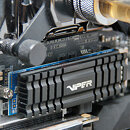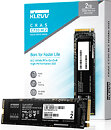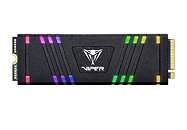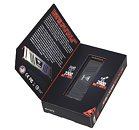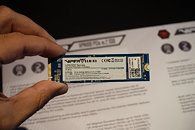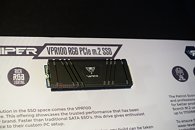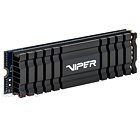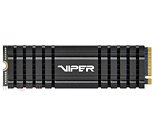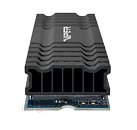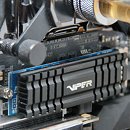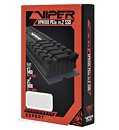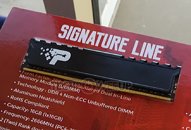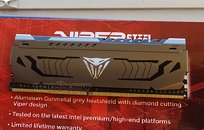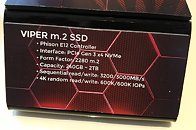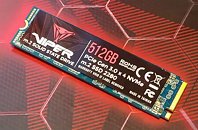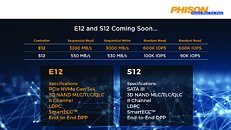
Patriot Joins ADATA in Changing SSD Components Without Advertising, Documentation, or Spec Changes
Patriot has seemingly gone the ADATA way in changing components for at least one of its SSD products without updating the relevant documentation. The move in question affects Patriot's VPN100 SSD in its 2 TB capacity - it is currently unclear if there have been any more changes to that particular SSD stack or others in Patriot's portfolio. According to reddit user Hexagonian, he was surprised to open up his brand new Patriot VPN100 2 TB SSD to find that the components listed in Patriot's documentation don't fit at all with what's actually packaged in the SSD solution. Namely, Patriot's documentation clearly lists a Phison E12 controller paired with 2 GB of DRAM cache. However, the Patriot VPN100 user Hexagonian received featured the Phison E12S controller alongside just 1/4 of the announced DRAM cache, at 512 MB.
The SSD market in particular has been shaken by some companies silently changing their component choice for particular products. These changes are not that uncommon, mind you; especially due to the logistics and supply constraints that we are still getting out of on account of the pandemic, it's understandable that manufacturers replace some of the originally selected components with others that have either reduced pricing, higher availability, and so on. However, these decisions are particularly egregious when these changes have relevant impact on a product's performance. ADATA was one of the first SSD manufacturers caught red-handed in this game of component replacement. It's interesting how these component changes have never served to improve characteristics of these hardware pieces, however; changes have always seemingly pointed towards lower manufacturing costs whilst the end-user pricing remains the same.
The SSD market in particular has been shaken by some companies silently changing their component choice for particular products. These changes are not that uncommon, mind you; especially due to the logistics and supply constraints that we are still getting out of on account of the pandemic, it's understandable that manufacturers replace some of the originally selected components with others that have either reduced pricing, higher availability, and so on. However, these decisions are particularly egregious when these changes have relevant impact on a product's performance. ADATA was one of the first SSD manufacturers caught red-handed in this game of component replacement. It's interesting how these component changes have never served to improve characteristics of these hardware pieces, however; changes have always seemingly pointed towards lower manufacturing costs whilst the end-user pricing remains the same.

